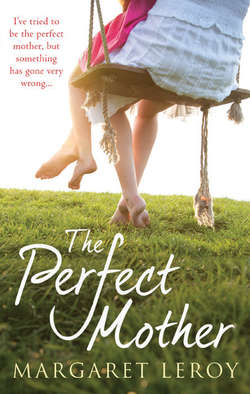Читать книгу The Perfect Mother - Margaret Leroy - Страница 14
CHAPTER 10
ОглавлениеThe school was in a hushed street off King’s Road. There was a cottage, old and rather crooked, at the turn of the road, and a little arched door in the wall. I rang and the door opened: children’s noise rushed out into the stillness of the street. Miss Parry, the headmistress, introduced herself; she was tall, gangly, flatfooted as a heron, with vivid bird-like eyes. She took me through the cloakroom, where every peg had a different hand-painted picture—a duck, a tulip, a blue umbrella. This amazed me, the generosity of it, such detail lavished on every child, every name. And we went through the airy playroom, and out into the garden at the back, a storybook garden, a secret between high walls, with a labyrinth of twisty stone paths and trampled scraps of lawn, and, in the middle, steps down to an old well—now filled in, of course, said Miss Parry—where there grew an old catalpa tree with leaves as wide as hands; and over there by the sandpit, she said, the two mossy stones set into the lawn were Carolingian graves. The whole place was exuberant with children, and messy with the tumbled detritus of their play, plastic animals faded by the sunlight, and the tyres and boxes and blankets they used to make castles and dens; anarchic and disorderly, but the disorder held and contained by the walls of yellow London brick, and the narrow bright beds of hollyhocks and lupins that fringed the edges of the garden.
She showed me round, asked a few obvious questions, then left me in the playroom to see what I’d do. Cast adrift in that sea of children, I did what made me feel safest, and sat in the art corner drawing extravagant pictures, of flamboyant animals with wings and wicked fangs. The children gathered round, adding their own details, colouring in. After a while my self-consciousness fell away. I was surprised to turn and see Miss Parry behind me. She reached out to touch a doleful tiger I’d drawn. ‘I think you’ll do quite nicely here,’ she said.
It wasn’t perfect. There was a lot of drudgery, toilets to be cleaned, floors to be swept and swabbed, little plastic bits of things to sort and put back into boxes. And it was physically exhausting, particularly demanding perhaps because it was so unstructured, all these children who tugged at your sleeve with their urgency and demands. The pay was minimal—enough to pay the rent on my flat and to buy a bit of food, though mostly I lived on what I ate at the nursery, the lunches of sausage or stew followed by jelly and bland glossy custard; and just about enough for mascara, and bleach for my long hair, and occasionally a new pair of clingy jeans or a faded knitted top with rainbow beading from one of the second-hand stalls in King’s Road market. But mostly I was happy there. I found I had a skill with children, that I could join in their play, enter their worlds: I don’t know where it came from, this easy instinctive ability—it seems surprising given the fractured nature of my childhood. But for me there was something so satisfying in the company of these children, with their openness and freshness and unanswerable questions. Where was I before I was born? Are the birds cross? Why do winds in cartoons have faces? Maybe I had some sense that this was what I needed—these years spent eating toad-in-the-hole and playing and reading picture books in a place that was kind and generous, where every child was so precious they had their very own picture next to their peg. It was perhaps a kind of healing for me: a reliving or a recovering of childhood.
